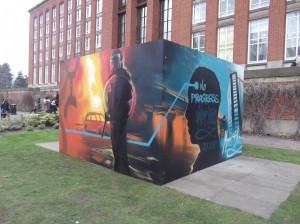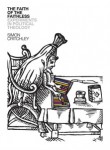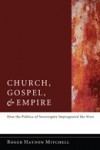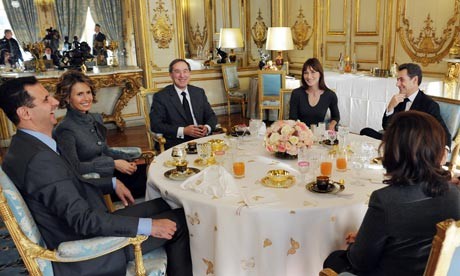
Where are you from? It may seem polite conversation, or an extraneous identifier, but it matters. In politics, it matters a lot. In the ongoing Republican quest for a nomination in the presidential race, certain candidates have made it clear that what matters are the delegates—and winning the states that secure the most delegates. If you’re not from one of those states, at least in this matter, your vote carries less weight. Similarly, as a registered democrat in a strong Republican county, my vote in the presidential race if I vote party line, is unlikely to actually change the dispersion of my state’s votes in the electoral college. And even more locally, when I moved to a small town in Western Pennsylvania, a dear friend who had lived in that town for more than 30 years, worked there, retired there, and raised her family there, advised me, “Don’t worry about being new to town; everyone here is welcoming, but after thirty years, I’m still not ‘from here.’” She was right. Where you’re from matters…

Over the last few years I’ve noticed several key strands emerging in relation to thinking about the nature and role of ‘Church’ in the 21st century….At one end of the spectrum we find attempts to re-assert a ‘church-centric’ postmodern Christian vision which arguably eschews serious engagement with the social sciences and is wary of faith groups partnering with government. We could think of this as an ecclesiology of/for the ‘big society’, a new ‘Christendom’ or what has become known as ‘radical orthodoxy’ (seen for example in the work of John Millbank). At a grassroots level it’s possible to see some linkage between these ideas and what has become known as ‘emergent church’. At the other end of the same spectrum we see the emergence of an alternative ‘post-secular’ theological narrative within which ‘Church’ finds its space as part of a network (or perhaps rhizome) of narratives of meaning in a society that has become increasingly suspicious of organized religion of any sort. We might call this ‘third space’ ecclesiology (seen perhaps in the work of Chris Baker) – more ‘Occupy’ than ‘big society’. As the place of faith in the public sphere has once again become a central political question the Christian community in the UK finds itself at a watershed moment. These two strands of political theology continue to stimulate challenging discussions about the future for faith in the 21st century. And yet both approaches leave me feeling uneasy for three reasons…
In the end, John 3 presents a very troubling political and theological landscape: there is us and there is them, and them are where they are because they hate what we stand for. The warm and fuzzy feeling that is generally associated with John 3:16 can only be maintained if one stops reading right there. It gets scary and divisive and not very loving thereafter.
The principle of subsidiarity is perhaps one of the most crucial and most misunderstood in Catholic social teaching. According to the principle, decisions should be made at the lowest level possible and the highest level necessary. Subsidiarity is crucial because it has applications in just about every aspect of moral life. In medical ethics, subsidiarity helps guide decision-making. In social ethics, subsidiarity helps us prudentially judge not only decision-making but allocation of resources. Subsidiarity is an effort at balancing the many necessary levels of society – and at its best, the principle of subsidiarity navigates the allocation of resources by higher levels of society to support engagement and decision making by the lower levels. Despite how often it is stated – subsidiarity does NOT mean smaller is better.
John offers the temple story at the beginning of his gospel although the other Synoptics place it at the end. Why might this be so? In my view, John wants to introduce us to the portrait of a “radical” Jesus whose revelatory message supercedes and fulfills the tenets of Judaic law, even to the point that it abolishes aspects of this law, a theme that will continue throughout the rest of his gospel.

What brought Strauss into conversation with Schmitt was their mutual disillusionment not just with the political liberalism of the Weimar Republic but with post-Enlightenment liberalism in general. For theoretical solutions on how to ground political authority in something more substantial than Enlightenment rationalism, they both turned to aspects of pre-modern traditionalism – for Schmitt, an authoritarian Catholic political theology, for Strauss the recovery of ancient political philosophy and its medieval transmitters. On the practical plane, they both thought that parliamentary democracy was utterly unequipped to cope with the various crises afflicting postwar Europe. As a Jew, however, Strauss had no chance of signing on with the various authoritarian options on offer during the 1930s, since they invariably included anti-Semitism as part of their program and ideology. Both men shared ambivalent relations with their respective religious traditions and have even been suspected of covert atheism. In the end, Schmitt’s Catholicism, however episodic and selective, seems to have been more integral to his thinking than Strauss’ ancestral Judaism was to his.

The Weimar Moment: Liberalism, Political Theology, and Law, edited by Leonard V. Kaplan and Rudy Koshar, is a set of papers from a conference held at UW-Madison in the fall of 2008 (Lexington Books, 2012). Many of the papers will be of direct interest to readers, most notably perhaps the set dealing with Karl Barth. Here I want to point out some of the more important observations and analyses that surfaced during the discussions (full disclosure: I attended and have a paper in the proceedings).
The recent blogs relating to Radical Orthodoxy and its differences from the work of the William Temple Foundation appear to have ground to a halt. This is a pity as they were just about to get beyond the realms of intellectual points scoring and into some serious debate. An angle that had yet to be pursued was that of the former’s advocacy of localism and how that might be operationalised in the UK context where the current administration is keen to promote this as a policy initiative. As someone who through parochial ministry, has been eager to operate at a local level and been involved in various community work projects, I feel that I have a powerful stake in this debate (examples of this are to be found in my Local Theology: Church and Community in Dialogue, 1994, and again in Blurred Encounters: A Reasoned Practice of Faith, 2005). So when I read that there should be a renewed interest in and support for church-based projects that are indeed locally based and developed, I would have to say that I am broadly in agreement. My problem, however, is that it is difficult to see how this can be operationalised given the current pressure upon local voluntary resources, and that it fails to take into account the reality of many local issues.

Simon’s book, The Faith of the Faithless: Experiments in Political Theology must be read as throwing down a great risk. Simon enters into the theological and the political domain in ways that are offensive to how these very terms have been shaped in order to stifle action, subjectivity, and even faith itself in the very name of the political and the theological.
A few radical thinkers have recently risked thinking otherwise about theology and the political. But for the most part professors (especially in the context of America) have not been willing to risk thinking otherwise about religion and the political for reasons that can only be explained by how much academic speak has been policed by the assumption that the student is little more than a passive consumer in need of placation through reinforcing their unconscious assumptions (conservative or liberal) in the pretension of being “critical” and “objective.”

